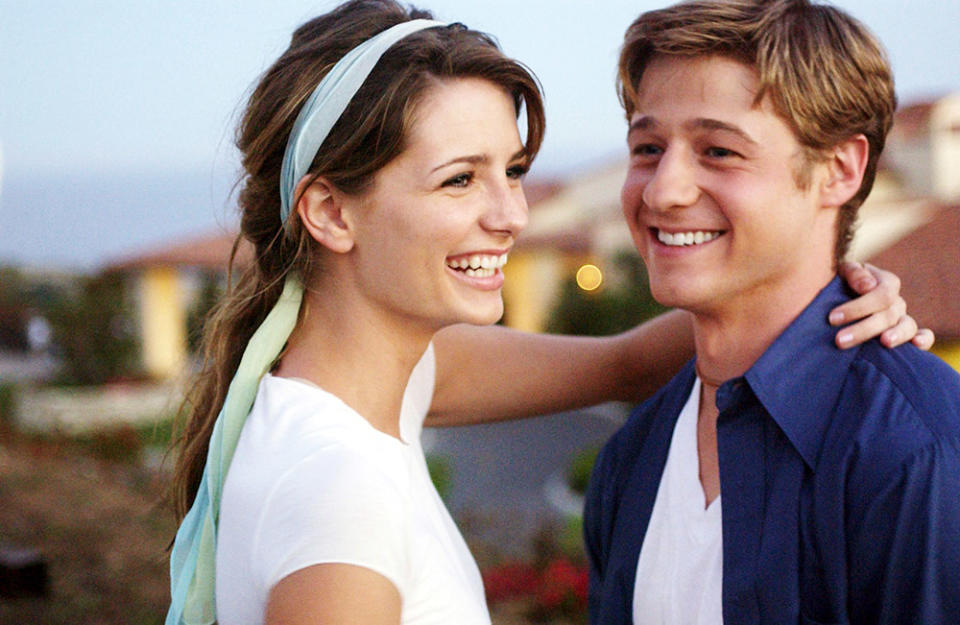‘The O.C.’ at 20: Josh Schwartz and Stephanie Savage on Oral History Book, Lessons Learned and YA Storytelling in Streaming Era

When Josh Schwartz and Stephanie Savage launched The O.C. in 2003, it would change TV — and teen dramas — forever.
It’s a winding journey that the duo captured with the help of Alan Sepinwall, Rolling Stone’s chief TV critic, in Welcome to The O.C.: The Oral History. Across 11 chapters — and a prologue that teases the wild ride — the trio, along with the cast, writers, crew members, producers, journalists, fans and studio and network executives, trace the show from its early origins to its very last days on set, and beyond.
More from The Hollywood Reporter
Not only would the show bring Savage and Schwartz together in what has become one of TV’s most fruitful partnerships with Fake Empire Productions, but it would go on to inspire a library of young adult shows, from Gossip Girl (and its reboot) and The Carrie Diaries to Marvel’s Runaways and Looking for Alaska; multiple reality shows including Laguna Beach: The Real Orange County; and a brilliant Saturday Night Live skit. That’s all alongside continuous calls for a reboot that, for now, the duo say will (and as many fans would agree, should) go unanswered.
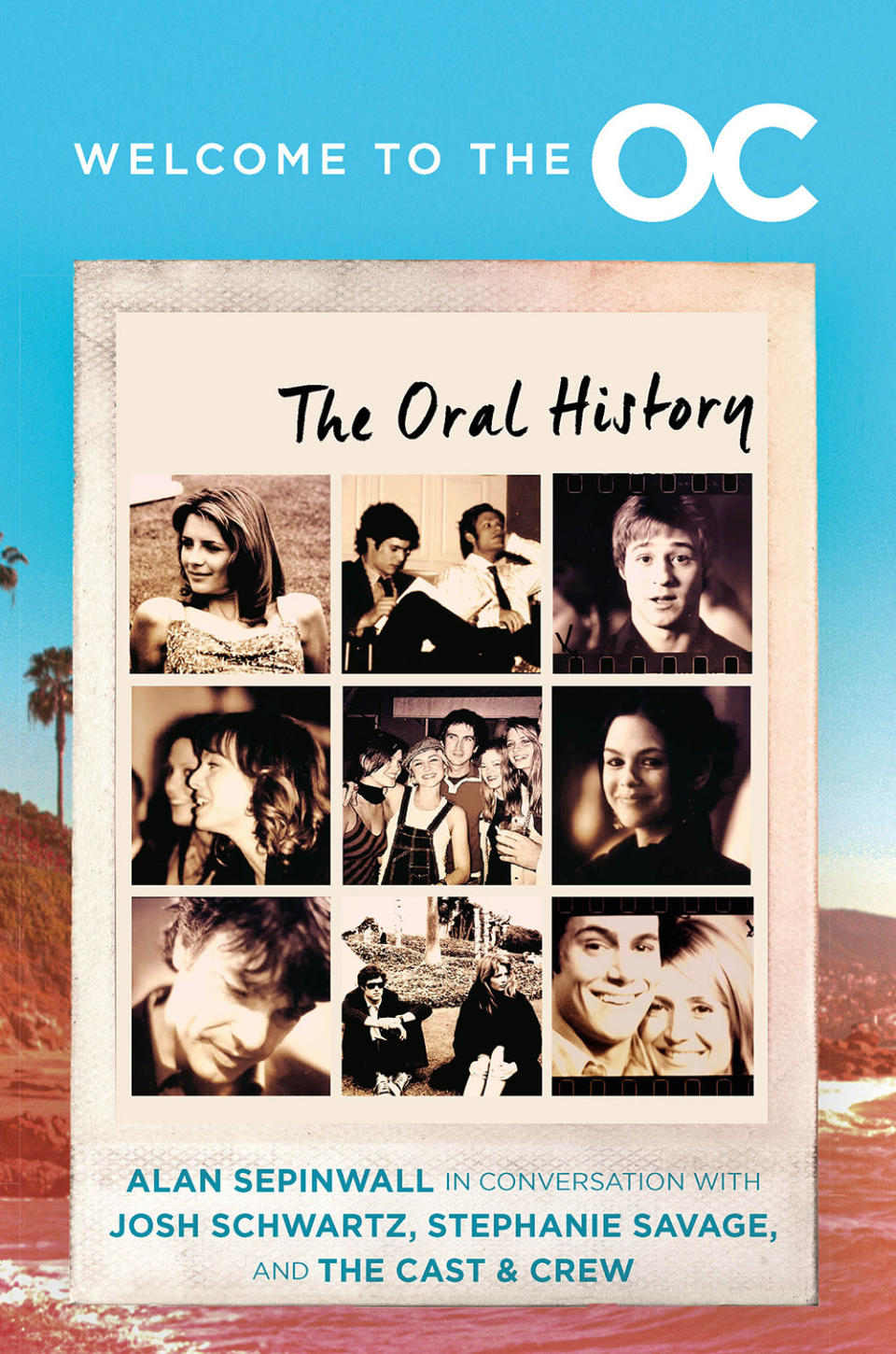
It was four seasons that changed the lives of those who worked on it and left an imprint on a generation of viewers, the feeling of which Schwartz captures himself. “I was staring at the water, and I had this real sense of, ‘This will never happen again. When this season ends and everybody goes away, it’s going to close the chapter on this particular experience,'” The O.C. creator recalled in the oral history of filming the season one finale in Malibu. “Even though there were more years to come, it felt like the end of something.”
It’s a sentiment easily applicable to the entire series, the kind of phenomenon that doesn’t even seem possible in today. The mid-2000s was a time where watch parties abounded, “appointment TV” was a regular phrase, and TV recappers could actually turn fan fervor into page views. With the rise of streaming, platforms now prohibit the kind of screenshots that made The O.C.‘s memes possible; a series’ title sequence (and its memorable theme song like Phantom Planet’s “California”) is literally skippable; and a show can get pulled altogether from a platform, preventing a new generation from ever viewing it.
The O.C. shifted the culture. But now, two decades later, the culture has shifted again, making the lessons and celebrations from the trio’s oral history of the Fox series even more insightful. Below, Schwartz and Savage speak to The Hollywood Reporter about how both their style and TV as a whole has changed (and in ways, remained the same) since The O.C. premiered 20 years ago.
***
There’s an honesty to this oral history that isn’t just refreshing, but that will likely have fans and even some critics reconsidering their feelings about the show in a positive way now that they have some explanation for what they were seeing. But do you think doing this would have been possible before now?
JOSH SCHWARTZ Hard to say, obviously, because you just could only respond to what actually happened. But I think a lot of us had personally let go of some of the things creatively or personally that you would’ve done differently, and see that the show’s legacy feels secure and that the show has meant a lot to a lot of people in a really positive way, and that all of our relationships have landed in a really good place as well. And I think we were also helped immeasurably by Rachel Bilson and Melinda Clarke’s podcast.
STEPHANIE SAVAGE Yeah, I was just going to say that.
SCHWARTZ Which started over the last couple of years and has been individual group therapy for everyone, and an opportunity for people to start the process of reflecting and reconnecting. And I think that gave us the confidence to pursue this project.
The O.C. is repeatedly celebrated for having one of the greatest pilots in history, and a chapter in the book is dedicated to it. But making pilots today is not the same, especially with streaming. How do you approach them now?
SCHWARTZ I think Stephanie and I still approach the first episode as if it is a sales tool to get the show ordered, and as the thing that’s going to hopefully hook the audience. One thing I can point out, at least in the experience of Runaways, that was very different from our time doing pilots in the network era was that often in network, you’ll get the note of, “Can you make the end of your episode the end of the teaser?”
And when we were doing Runaways, which was our first time working in streaming at Hulu, we got the note, “Can you make the end of your teaser the end of the pilot?” And that was a really interesting shift. Because when you’re doing a pilot episode, it had to really sell in network, back in the day. You were really selling what the series was going to be inside of the pilot.
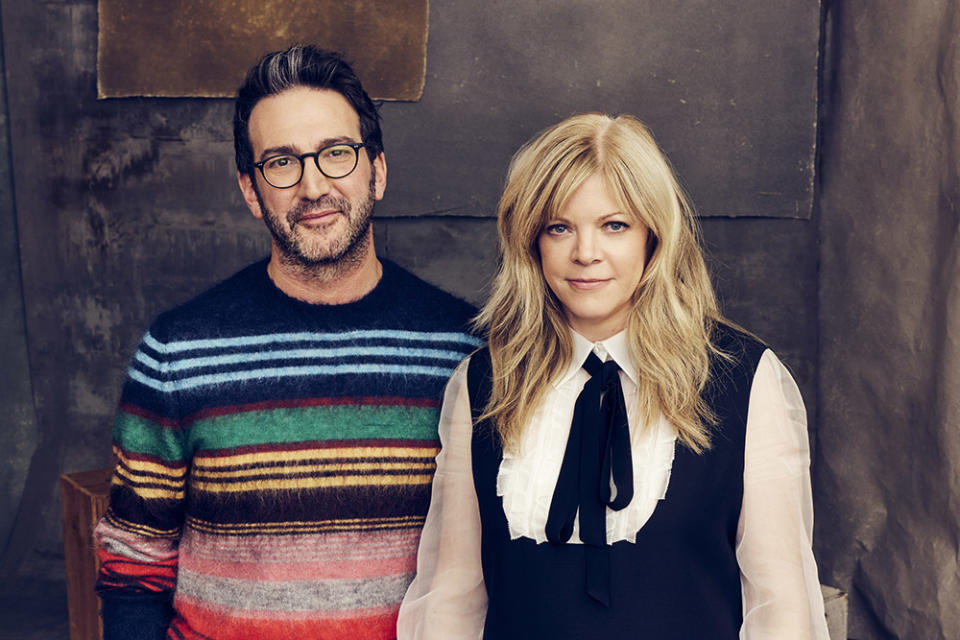
The O.C. pilot is a little bit of an anomaly in that it explains what the dynamics will be moving forward, but it actually takes three episodes. It’s almost like a three-episode pilot for Ryan [Ben Mckenzie] to fully lit into the Cohen house. But for the most part, that was the broadcast model of that day, which was — get the audience hooked and show them what the series is going to be. And premise pilots were a really, really tricky thing to have them sign off on. Whereas today in streaming, they don’t look at that pilot as you said in the same way and you could take your time. I do think that’s starting to shift again.
The O.C. was special in that, unlike some other teen shows, you weren’t just exploring the teen experience, but inspiring what real young adults wanted to do and be. But as the oral history documents, much of those character and storyline decisions were happening in rooms of adult creatives and executives. So how did you navigate maintaining that youthful voice?
SCHWARTZ Well, I was very fortunate that I had as my producer and protector, Stephanie Savage, who her job on the pilot was really to just protect the integrity of the show and the voice of the show, and she really fought tooth and nail for that. I think it’s an easier thing to execute obviously when you are much closer in age to the characters you are writing about. I was really writing in some ways about a lot of my experiences coming to USC as this Jewish kid from the East Coast. So my college days were only a handful of years prior that I was referencing.
As you get older, what Steph and I always talk about is that the technology changes, fashion can change, the vernacular can change, but the themes that teenagers grapple with, that adolescents grapple with are timeless, which is why John Hughes movies continue to resonate today. It’s why Rebel Without a Cause, which Steph made us watch and was super passionate about, still resonates. So I think we try to find the universality and the timelessness in these stories, even if we are no longer as close to the characters’ ages as we once were.
SAVAGE And I think using some of those archetypes, deploying them stealthily is a way that that is partly why the adults in the room were willing to go along with the story that we were telling. Because you do have some very strong archetypes of the moral outsider, the pretty girl who’s hiding her darkness, the outsider who feels like he doesn’t belong. There’s characters there that really do resonate over generations and through time, and then it’s telling the story that feels completely contemporary in all of its details and texture so that you’re not feeling that. But that is very much a part of the architecture that’s holding up the whole story.
The O.C. begins something distinct in your storytelling — your inclusion of parents. The oral history charts how the parents’ storylines play out across four seasons, to mixed results. What about this experience did you take with you to strengthen your parent storylines in future projects?
SCHWARTZ I’m not sure we ever wrote parents as well as we wrote Sandy [Peter Gallagher] and Kirsten [Kelly Rowan] Cohen and Julie Cooper [Melinda Clarke], and I think we’re incredibly proud of how the parents storylines were so central and relevant to the overall story. The Sandy-Kirsten marriage was such a North Star for people that, with all the drama having taking place on the show, they could always rely on them. It’s just like a core stable dynamic. Naturally, because you get restless when you’re making these shows and you’re looking for drama everywhere you can find it, we did challenge their marriage at one point and fans were not happy about that in a way that felt very sincere and emotional.
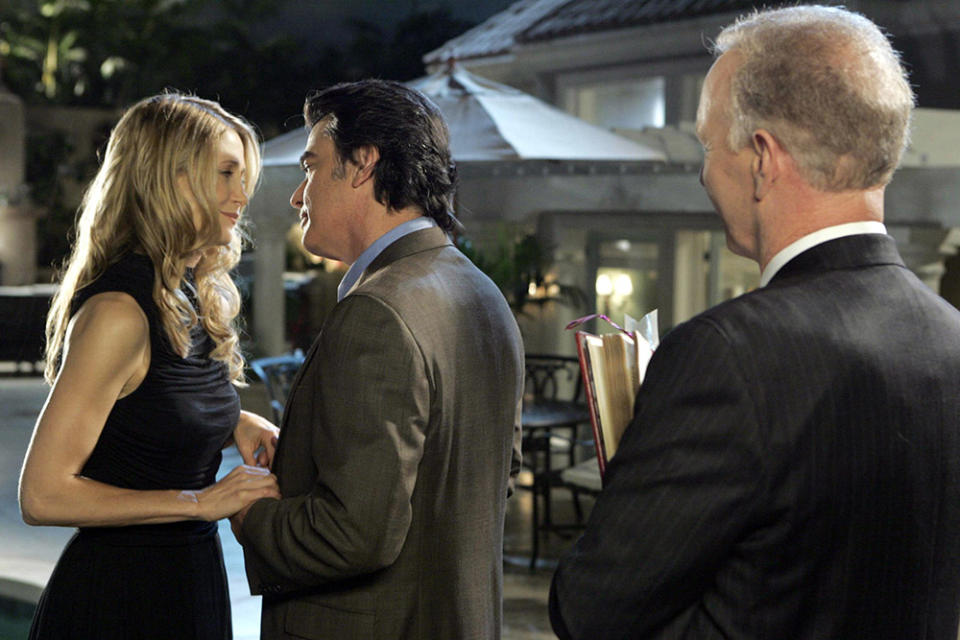
And obviously we were really fortunate just to have such fantastic actors like Peter Gallagher and Melinda Clarke and Kelly Rowan and Tate Donovan. We often talked about how when we were making the pilot of the show that you could take the kid characters out of the show and you could have an entire show about this entitled rich Newport girl who was in love with this guy who she grew up with, and then ended up marrying this blue-collar Jewish outsider from the Bronx, and now they all live next door to each other. That in itself could be a show. So we really wanted those adult relationships to feel like they stood on their own, whether or not there were teen characters as well.
SAVAGE And that is something that we brought into Gossip Girl. The parent characters are significantly different than they are from the books, and I think that’s a lesson we learned on The O.C.
SCHWARTZ Even with Runaways, obviously what we loved about that comic was, what if every teenager thinks their parents are villains? What if your parents actually are? But then we spent a lot of time trying to flesh out those parents and understand what was behind their villainy as well. So it definitely is something that we invested in early on, got really positive feedback and it’s been an important part of our storytelling ever since.
Something that The O.C. — and all of your library of shows, including Gossip Girl, Runaways, Nancy Drew, City on Fire — really explores is class. More so now, but a lot less of television when you debuted The O.C. was having real conversations about it. Why is that a subject for you that’s really compelling and speaks to the young adult experience?
SCHWARTZ It’s twofold. I think one, just as people who want to reach a broad audience, there’s something compelling for viewers about being brought into a world that feels rarefied and that feels like, only through this TV show can you gain access to this world. I think Stephanie and I also live vicariously through the shows to get access to those worlds. We grew up with very different backgrounds, but I think we both often feel like outsiders in the world and can really relate to that outsider character coming into these worlds. I think the idea of outsiders in general, even more than class, is really the central theme of the project that we’ve been at for the last two decades.
The oral history also addresses your original pitch for this show, which featured a Latina character, and how some characters of color like D.J. were treated. That initial O.C. pitch speaks to your larger catalogue, which is much more inclusive and has even directly addressed some criticism, like the Gossip Girl reboot. I’m curious how you’ve approached evolving that Breakfast Club vibe over the course of your careers into that more inclusive vision?
SCHWARTZ Even Looking for Alaska, I think the central character became Denny Love’s character as the Colonel and that was something we changed from the book. Part of it is obviously, the show did start out as one type of show and there would’ve been much more of a race component to that, as well as class that we had to abandon and come up with a new premise on the fly [for]. Another part is obviously the era in which we were making the show. You look around at a lot of television series from that era, we’re not alone. And I think we have just tried to do our best to evolve with the times and become aware of the impact your shows have and the audience for your shows, and wanting to put something on screen that feels more reflective of the audience who’s watching your show.
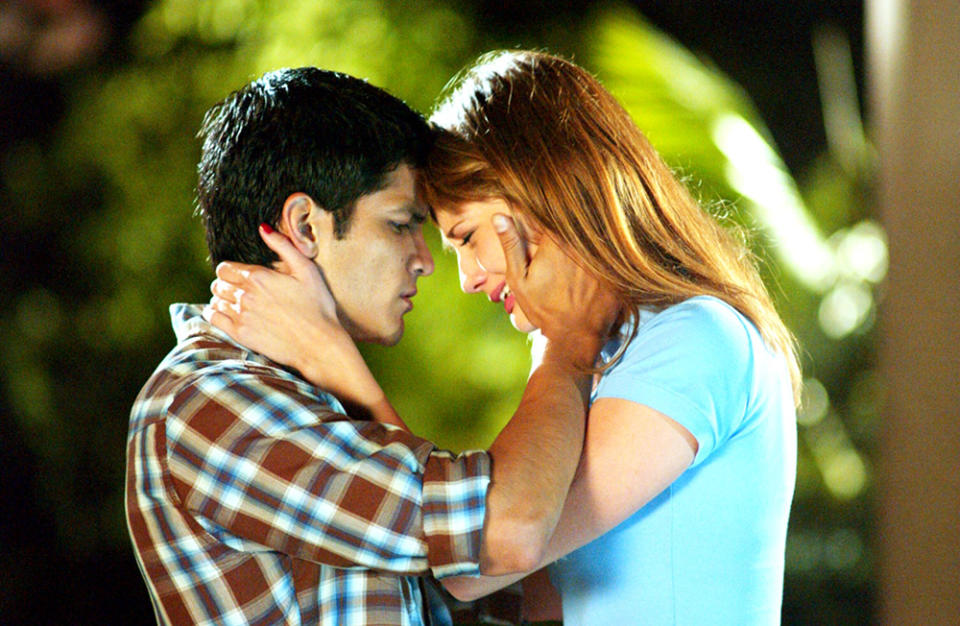
You address some iconic moments in the show in the oral history, including that Marissa pool screaming scene. Even today, looking at YouTube and Reddit comments, women really respond authentically about it, even if it is meme-d. Do you think that scene might play differently today?
SCHWARTZ I may not be even aware of the kind of conversation around that scene. I don’t really chase the memes. Obviously, if the show’s being parodied on SNL, like the huge Imogen Heap skit that happened, that I’ll be aware of. But I’m glad that there’s a conversation around it. I think sometimes the benefit of melodrama is you are putting something that a lot of people are feeling on screen in such a heightened way that it weirdly helps to externalize this internal feeling people have, even though it’s beyond how anyone else would react. Helps it to feel more universal.
Other people aren’t going to scream and throw a chair in the pool, but they’d like to. Or seeing that expressed on screen in such an exaggerated fashion helps how they’re dealing with their own issues or makes them feel less alone seeing that moment, and feel better about how they’re handling it. Probably in 2023, Julie Cooper was calling some kind of a therapist or a school guidance counselor, but maybe not. Not sure Julie Cooper would’ve gone there either. But that was a moment where, as opposed to giving Marissa a monologue to list all the things in her life that are plaguing her — that, by the way, the audience is already aware — let her have this primal scream of emotion. It says everything without having to say it. And I think that’s what was really useful about that scene.
SAVAGE And Mischa really committed in the moment and our director did a great job, and Melinda was there reacting and it felt like it just came together as something larger than life, but also important to be said and heard.
Seth and the pot smoking was probably the most surprising turn for me as a young viewer. The oral history explains how that came in, but was it something you had ever really thought about before that moment? Would you have done anything differently?
SCHWARTZ I think the part about that storyline that makes us less proud today is that we never wanted to handle drugs or certain kind of elicit behavior that teenagers will get up to in a way that ever felt like it was an afterschool special or we were there to teach a lesson. We’re obviously there to talk about family and human connection, but not necessarily to teach about alcohol or drug abuse. I think when we look back on that storyline, we lost a thread there. It tipped into much more sanctimonious territory, where Seth had to be punished for his behavior in a way that, quite frankly, if it were season one wouldn’t have.
SAVAGE It’s mentioned in the book, but a lot of that was outside pressure from the network to increase the amount of incidents on the show. So the idea of, “Seth smokes pot” — that’s not really a story that’s driving a marketing campaign, but it’s joints. That’s something on fire. Well, we can put that in the promo and then maybe people will watch the show. So there was a lot of, how do we take these things that maybe have been just texture and elevate them to story? And not all of those worked.
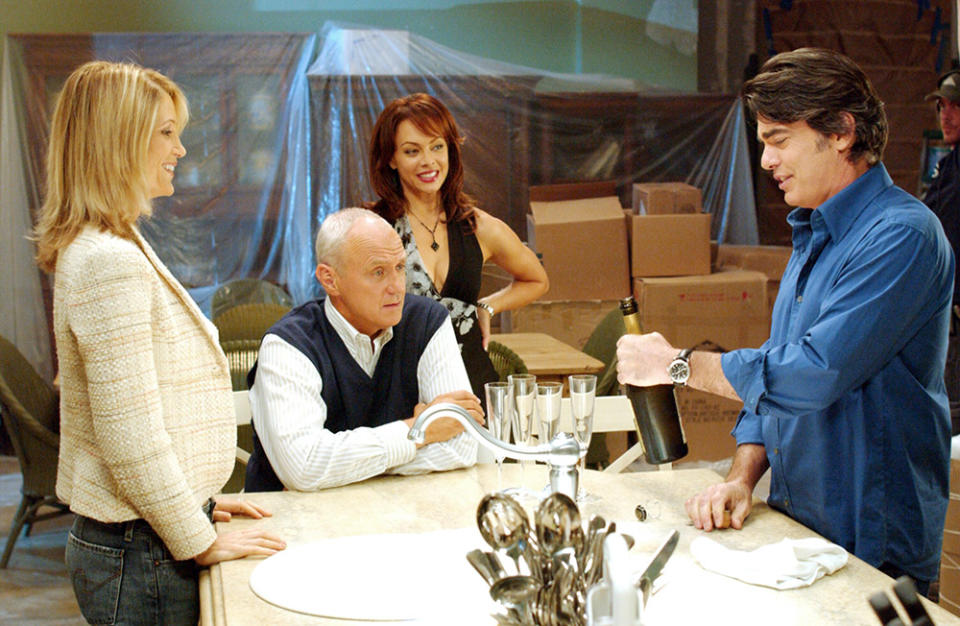
You talk a lot about the guest stars and recurring characters — your feelings on how you executed their arcs and when you wrote them out. But alongside that is the conversation about deciding who doesn’t just leave, but who dies. How did you decide which characters were killed and which were sent off?
SCHWARTZ I’m trying to actually reflect on the entire body count on the show, but I think with something like Caleb [Alan Dale] dying in season two, in that moment, we have no idea what’s coming in season three. We haven’t even begun to even think of season three. So that felt like a really traumatic, appropriate story with the irony of: Julie’s going to kill him and then he dies anyway. There was fun to be had there. We didn’t kill Trey [Logan Marshall-Green] and I’m not sure if people felt like we had pulled our punches. Johnny’s [Ryan Donowho] death, I can’t — I don’t know. Mea culpa for the whole thing. And Marissa, that almost has to be a separate conversation and not in the same calculus as some of these other stories.
You discuss how, as you navigated various seasons with different kinds of feedback, you considered if a season might be the end or why you wouldn’t want to end it then — that there’s a crew and story worth protecting here. Streaming has changed some of the nature of cancellation, but back then, did you have any moment where you really thought, “Let’s just end it now and go out on our own terms?“
SCHWARTZ I think we did get to go out on our own terms. I’m grateful that they gave us an early heads up in season four that it would be our final season so we could really build the season properly. They didn’t hem and haw, then we do a cliffhanger and that’s the final episode of the show. I feel like we got to bring the show full circle. I’m really proud of season four creatively and especially how it ends. I think for us, our sincere hope in starting season four was, if the show is good enough in this season that we have learned so much, especially after season three, that maybe there’s additional life to the show and maybe we could go five seasons. That was really the mentality of network television then as well. You just stayed on the air until you hit a hundred episodes, got your cake, syndication — all these things that have literally no relevance at all [now].
We did 27 episodes in season one, which would’ve been three seasons of a streaming show. So it’s a very different motivation now. It really wasn’t until Lost where they negotiated an end date. That’s really what started setting this idea of, maybe TV shows don’t have to stay on forever just because.
SAVAGE The metric of success was the number of episodes. So even if you were struggling in the ratings, even if you were struggling creatively, you still were trying to stay in it and ride the ship in the hope of making it to the shore where syndication was and where success lay. Very different now.
You were on Fox at a time when Fox was doing teen dramas. You have been on The CW, which came after The WB and UPN combined. Those networks are no longer in that game, and now it almost feels like there’s no place to go for these shows. Where is there a home for teen dramas?
SCHWARTZ There are potential homes at different moments. I think Netflix has been really successful with these kinds of shows. Amazon obviously has had success recently. There’s Euphoria on HBO that feels unique. I don’t know that that is a model that HBO is going to continue to follow, but they obviously did it extremely well. So there are opportunities, I think, in streaming where these shows can work. I don’t know that there’ll be a network dedicated solely to those kinds of shows [again]. Even by the end, The CW had obviously moved away from that. So it’s just about finding the right kind of story and the right home for it, but they are out there.
SAVAGE And we feel like the audience is definitely there.
SCHWARTZ At all ages because often these shows have a much older audience than you suspect. Gossip Girl, I think, the median age was —
SAVAGE Twenty-six was the original median age and then it aged up with the show. That was the season one median age.
SCHWARTZ Eighteen to 49 was what The O.C. was being measured on. So that audience remains; that audience is evergreen. People will always love coming-of-age stories. Young people will always want to see their stories reflected on screen. People will always remember what it used to be like to be a teenager and want to revisit that. It’s just about finding the right show at the right home. It’s the right moment.
Welcome to The O.C.: An Oral History is now available.
Best of The Hollywood Reporter
